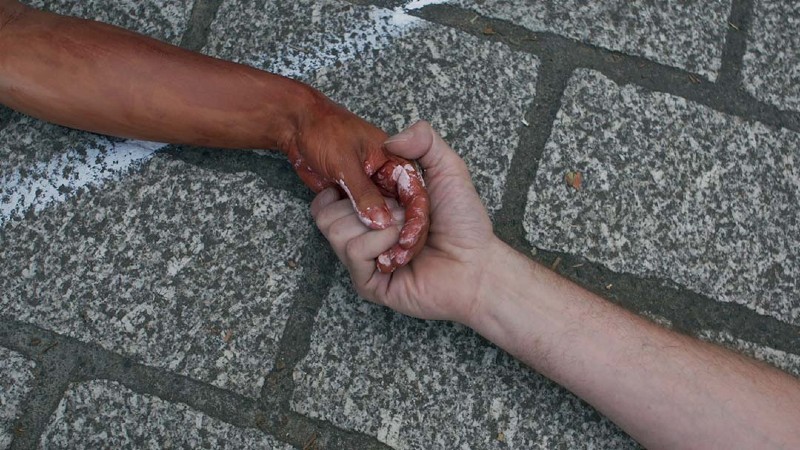




The saddest part about Hostile is how little it shocks. The UK’s immigration policy — turning sour ever since Enoch Powell spouted nonsense about rivers of blood in 1968 — has been deliberately designed to make people who come to this country feel like they don’t belong.
Whatever supposedly makes Britain “great” — a moniker blasted upon countless placards when you arrive into a port of entry — it is not our approach to our migrant population, which must be one of the cruellest on the planet. Hostile, set during the boiling point of the coronavirus pandemic, shows how successive governments are slowing destroying British hospitality from the inside, creating an environment of fear and loathing amongst its most valued citizens.
Combining testimony — featuring immigration experts and Labour politicians — with stories from the ground, Hostile is a heartfelt and bitter exploration of policies that are downright evil. It does a fine job of explaining the context of empire and how it relates to crises ranging from the EU referendum to the Windrush scandal. At the heart of this unique mixture of callousness and incompetence is the Home Office, who charge thousands of pounds for leave-to-remain applications, only to brutally dismiss them on a technicality. And while people wait, many are not allowed to claim benefits, apply for furlough, take on full-time work, or make use of the National Health Service.
The great irony here is the massive contribution of BAME people our healthcare system. On the frontline of the crisis, they were more likely to get sick and die while receiving very little in return. In response, communities have returned to mass action organising, whether it’s handing out food parcels or protesting outside Westminster. In lieu of a government strategy — or a functioning opposition — it is up to the people themselves to take direct action.

The government can easily make a difference — look at the swiftness with which we received Hong Kongers — most of the time they simply choose not to. The hypocrisy of our own current Home Secretary, Priti Patel, is briefly referenced in her infamous interview with LBC host Nick Ferrari, when he probes her about whether her own parents, Indian refugees from Uganda, would be allowed into the country under current rules. It would’ve been interesting to hear deeper thoughts about how POC are elevated into government positions or work for the British border force while doing nothing to further the interests of immigrants who resemble their own parents. Or learning why a significant amount of British-Indians supported Brexit.
Racist government structures are rarely straightforward, with underhand ways of pitting different people against each other in a race for power. Hostile does a great job of explaining how direct white supremacy works, but doesn’t explain the phenomenon of racism between communities or how it intersects across class, status and party affiliation. The film also goes to great lengths to explain how much its put-upon subjects have contributed to British society. While their contributions are to be celebrated, you shouldn’t have to do anything to be treated with a basic level of respect. Refugee voices are sorely missing here, especially those poor people coming across the channel in dinghies while “commentators” advocate for their drowning on daytime television. The current political tone in Britain is deeply sickening, with no remedy in sight… short of demolishing the Home Office completely.
With that said, any documentary that wants to cover the full extent of British racism and the miserable conditions anyone without the right passport faces, would probably run for hundreds of hours. Stretching a short 97 minutes, this is Sonita Gale’s first film. I got the sense that she’s just warming up.
Hostile premieres at Raindance, which takes place between October 27th and November 6th. In cinemas on Friday, January 21st. On BFI Player on Thursday, July 14th.











